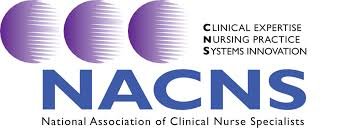The president of the National Association of Clinical Nurse Specialists (NACNS) today expressed deep disappointment that the Office of Management and Budget (OMB) on Friday incorrectly classified clinical nurse specialists (CNSs) once again, categorizing them as general registered nurses instead of as the advanced practice registered nurses (APRNs) that they are.
“Yet again, we are incredibly disappointed that the Standard Occupational Classification (SOC) Policy Committee is erecting barriers to full scope of practice for the more than 72,000 clinical nurse specialists across the United States who work in hospitals and other health care settings,” said Sharon Horner, PhD, RN, MC-CNS, FAAN, president of the 2016-2017 NACNS Board of Directors. “Clinical nurse specialists are advanced practice registered nurses who have education
and training in advanced nursing care, physiology, pharmacology, and physical assessment. The demand for CNS’s science-based expertise is rising as our nation’s health care needs multiply and become more complex.”
The SOC Policy Committee was established by OMB to ensure the coordination of occupational statistics across federal programs. By lumping CNSs into the general registered nurses category, the OMB prevents researchers from accurately capturing the data and statistics that represent the CNS workforce.
“By refusing to recognize the CNS as an APRN, the SOC Policy Committee’s recommendation skews the quality and utility of federal health care policy data,” Horner continued. “This classification is out of step with the other federal agencies, practice in the states and the larger nursing community. The seminal 2010 Future of Nursing report recommends that all APRNs, including clinical nurse specialists, be allowed to practice to the full scope of their education and training. States are actively adopting the APRN Consensus Model, which clearly identifies clinical nurse specialists as one of the four recognized APRNs. In May, the Department of Veterans Affairs (VA) proposed to amend its medical regulations to permit full practice authority of all VA APRNs, including CNSs, when they are acting within the scope of their VA employment. Furthermore, Congress recognized CNSs as APRNs in the Balanced Budget Act of 1997 when it allowed CNSs to directly bill their services through the Centers for Medicare & Medicaid Services.”
“Every day across this country, CNSs provide expert care to patients and their families, support nurses caring for patients at the bedside, help drive practice changes at their organizations, and ensure the use of best practices and evidence-based care to achieve the best possible patient outcomes,” Horner concluded. “We will continue to collaborate with other nursing organizations to show that if every health care setting employed CNSs, more care would be based on research and best practices, our health care system would be more efficient, and our patient population would be healthier.”
Horner said NACNS will submit comments on the recommendations for revising the 2010 Standard Occupational Classification for 2018 during this second comment period. OMB is expected to produce the 2018 SOC Manual in the summer of 2017. Federal agencies will implement the changes beginning in 2018.
Founded in 1995, The National Association of Clinical Nurse Specialists is the only association representing the clinical nurse specialist (CNS). CNSs are advanced practice registered nurses who work in a variety of specialties to ensure high-quality, evidence-based, patient-centered care. As leaders in health care settings, CNSs provide direct patient care and lead initiatives to improve care and clinical outcomes, and reduce costs. NACNS is dedicated to advancing CNS practice and education, removing certification and regulatory barriers, and assuring the public access to quality CNS services.













